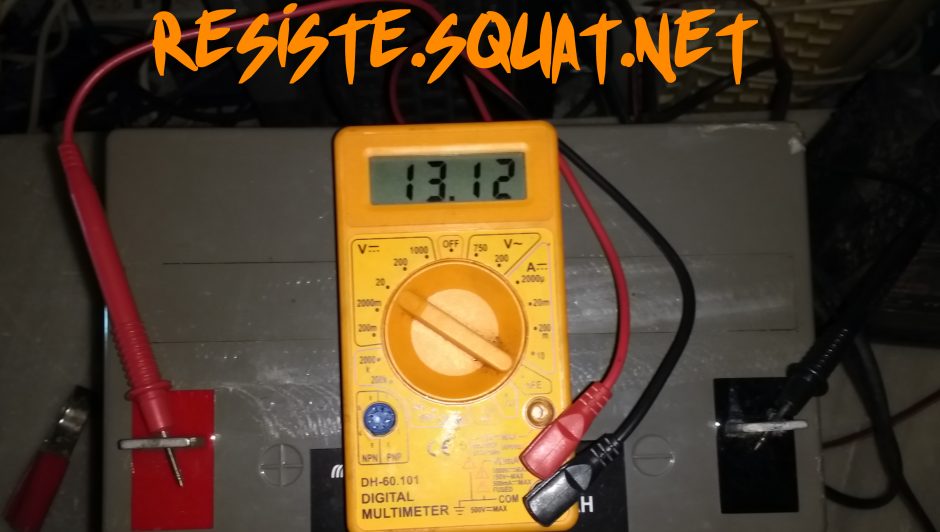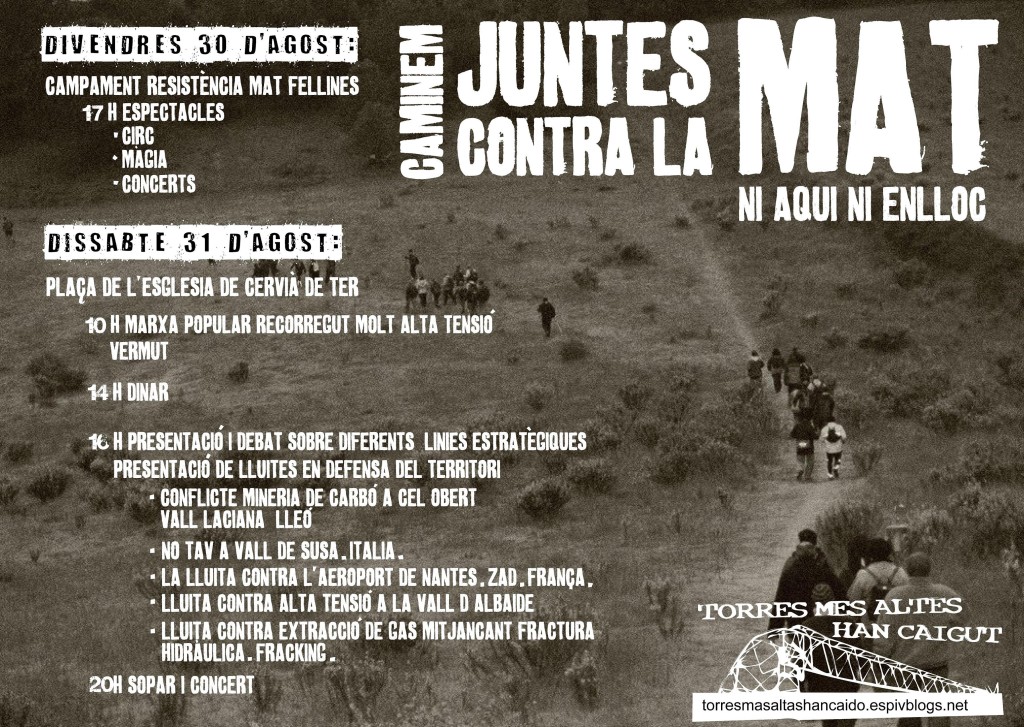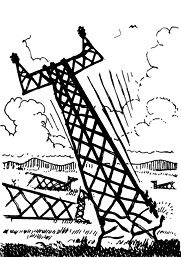
Libertarian perspectives for the Middle East
The interview that we share here was produced during August 2016, just two weeks after the coup attempt of the 16th of July. This also happened a month before the beginning of the big Turkish manoeuvre on the orographic right side of the Euphrates in the Syrian territory to counteract the presence of the SDF militia that had taken that region from ISIS, strategical for the supply lines of the Caliphate.
The following interview is the product of a meeting of several hours with a spokesperson of the Turko-Kurdish anarchist organization DAF (Revolutionary Anarchist Action) and it isn’t summarized. The precise interview has been added with fragments from the rest of the meeting.
It is a very urgent piece on our current events, hence why we also recommend reading the article translated by Meydan, the newspaper of the DAF, published on 26 edition year 96 of Umanità Nova (Fight for power, Fight against power). We consider the following interview a necessity to understand the Turko-Kurdish situation and the actions of our comrades in those areas.
D: How has the situation developed in Turkey during these last weeks? Is Erdogan’s power stronger after the coup attempt? How was the meeting between the AKP and Hizmet?
R: As you know, the organization of Gülen and Hizmet was active before the start of the governments of the AKP. When the AKP became a government group they formed a coalition, as Gülen’s movement was very noticeable from within the state apparatuses, police, military and legal courts. Hizmet has several schools, controls part of the education system, universities, the schools for preparation of university entrance tests, high schools, along with the media and healthcare. They all hold immense power. The AKP and Gülen have made a coalition and cooperated, especially in the justice system, thanks to the presence of Gülen’s members among all of the judges and lawyers. They have proceeded with the arrests and impeachment of many members of the armed forces, members of Kemalist groups and senior officers and top advisers of the general staff.
After this they replaced the arrested members with their own men and have further strengthened themselves, both the AKP and Hizmet, not only in the ranks of the military but also in all the other state apparatuses that were purged, like the police, intelligence services and bureaucracy.
However, during this time disagreements started emerging from these two groups and Erdogan launched a campaign aimed towards expelling Hizmet from the state. However the Gülenists intervened: their members in the justice system started investigating members of the AKP and carried out trials against many government ministers, their families and even towards Erdogan’s own son, accusing him of corruption and embezzlement of public funds.
This has been a critical step, followed by popular protests that have marked a difficult period for the AKP. However Erdogan’s party managed to impose legislative changes that eventually reshaped the laws on corruption, rendering all of the Gülenists efforts through the justice system in vain.
Obviously, after this Erdogan proceeded to attack the Gülenists. He consequently closed all schools dedicated to the preparation of university entrance tests controlled by Gülenists. Eventually a real war situation between these power groups started developing, with both of them targeting each other through different methods.
These legal changes from Erdogan were aimed towards protecting the bureaucracy of the AKP and purging Gülenist groups from the state. This was a huge operation towards the Gülenists, who soon suffered the consequences. For a period they remained passive, however at a certain moment they understood that thanks to their presence in the state they still had at their disposal plenty of useful information, including the government’s plans for completely suppressing them from the scene. Consequently, they began planning the coup.
Additionally, during the end of September 2016, an alternation was expected in regards to high ranking members of the armed forces and the Gülenists predicted that they would have been expelled from positions related to the military apparatus, so the time to quickly take action was critical. A corroborated hypothesis is that the coup failed due to an information leak that forced the leaders of the coup to rush the start of the operation, acting without their full force or because the factions of the armed forces that had sided with them withdrew their support and warned the government. The failed coup d’état provided the AKP with the perfect opportunity for attacking the Gülenists and proceed with an extreme purge against them. Having worked together for years and both being deeply rooted in state structures, it seems like they all had information on each other’s corresponding moves.
Around ten thousand people linked to Hizmet have been fired from the public service sector. A state of emergency was declared and the government was able to operate without having to answer to parliament.
At the moment they are only targeting Gülens group, however now they have declared that they want to punish all organizations referred to as terrorist, like the anarchist revolutionary forces, along with socialists and Kurdish forces.
D: What consequences will the failed coup have on the Kurdish situation?
In Bakur [Turkish Kurdistan, ndt.] there have been severe confrontations during these last months between the government and guerrilla forces, even if these decreased during the period preceding the coup. However, the government has declared that it will continue to destroy Kurdish cities and villages. The reasons for this manner of action are complex: the strategy of destruction planned by urban spaces is bent on rebuilding a largely controllable space with longer roads that are more accessible for armoured vehicles, but there are also economic reasons: the goal is creating a war economy and favour the processes of land grabbing. After the devastation of the Kurdish villages and cities these will have to be rebuilt. The players that are buying the land are public figures, public building companies, along with private ones: builders linked to the AKP. In fact the main sectors that support the government party are those involved in building constructions, as there are many builders connected to this party. This is one of the main reasons for the destruction of the Kurdish cities and villages. It isn’t very clear what will happen exactly, but we speculate that they will resume arresting Kurdish politicians, journalists, lawyers and activists. The HPD has expressed their opposition to both the attempted coup and the state of emergency. For now the repressive entities are dealing with Gülen, but the next step will probably be to attack the Kurdish political organization.
D: What is the situation of the left-wing Kurds and what is the influence of Marxist-Leninist parties that dominated social movements during the previous decades?
Before the coup of 1980 there was a powerful Marxist-Leninist movement and there were intense struggles in the workplace. After the coup for years no one could do anything, there was a very intense repression. During the 90’s the parties reorganized theirselves, but many of their members had already been arrested or forced into exile, so they had to restructure theirselves again from the very beginning. However, obviously the situation had completely changed from the 70’s when the extreme-left were hegemonic.
For the entirety of the 90’s the same unions opposed any sort of change and weren’t very active. After 2000 we can see how they came back to change certain factors in the workplace. Workers began organizing theirselves again, like in the years preceding the coup of 1980 and mobilizations resumed. However, evidently in Turkey things change very quickly, from year to year. For instance, during the 90’s and 2000 on one year it was possible to strike and protest, whilst on the following year the laws would have changed and repression started to increase again and after that it died down, all of this happening very quickly. And now the m-l (Marxist-Leninist) parties have certain influence but have diminished compared to the past, they are active especially in the Alevi areas [heterodox trend of Shia Islam, ndt]. Some groups are radicalized in universities, however there aren’t any large organizations. The important issue in Turkey is that there is an ongoing war: the war between the state and the Kurdish people, both in Turkey and Syria, with Turkish interventions. Hence, m-l parties had to take action and deploy their forces. Most of them support the HDP (People’s Democratic Party) and Kurdish movements and lots of m-l groups have been fully involved through solidarity actions with the Kurdish people.
D: How is the anarchist movement in Turkey and Kurdistan?
In Turkey the anarchist ideology was only disseminated during the end of the 90’s. There were small groups that published magazines, distributed translations from foreign publications. There weren’t any organizations, just small uncoordinated groups. In the DAF we started organizing ourselves in 2007, with the goal of creating anarchist activities and traditions for the areas of Turkey, Kurdistan and generally across the Middle East. The idea was to set an example and an anarchist tradition. At the moment we are organized especially in Istanbul and Amed, but we are also active in villages and smaller cities. We are well-known politically and respected, even among m-l groups. For nine years we have been able to create a history of anarchist struggles.
Our role in the solidarity with the Kurdish struggle has been very important for us because in a country where there is a war you must, whether you like it or not, take a stance on this issue. As anarchists, we have been involved during the revolution of Rojava and the attacks of the Turkish state in Bakur.
We believe that our involvement with these Kurdish political groups is important because it allows a reinforcement of libertarian practices among the members of these organizations that before weren’t strictly libertarian.
D.: What will the consequences of the failed coup be on the anarchist movement and, generally, on social movements?
Clearly the failed coup and the state of emergency are a huge threat for the anarchist movement. The state can perform repressive operations against any social opposition, it can arrest activists more easily. Already in the last months there has been a lot repression, especially towards Kurdish groups, but in the future there will be ulterior repressive actions targeting everybody and all political opposition movements, facilitated by the state of emergency.
D.: How is the current state repression affecting the anarchist movement as a whole? Are there any anarchist prisoners? Is it possible to contact them? Has the situation changed after the attempted coup?
Currently there are anarchist prisoners but, generally speaking, they are not in prison for their anarchist militancy, aside from anarchist conscientious objectors. Most of them became anarchists when they were already incarcerated and many have previous political experience through socialist or Kurdish groups. They started contacting us, so we began publishing articles from these prisoners and they organize theirselves. There are also vegan or vegetarian anarchist prisoners that have carried out specific fights to obtain food suitable for their diets and have also started hunger strikes to get food from the outside.
Usually political prisoners are under a lot of strong pressure in prisons but at the same time they are also well organized. Both left-wing revolutionary and Kurdish prisoners are very organized, they manage to have meetings, self-education and sport sessions. Evidently, this has been obtained thanks to the big struggles during the last years. When a new political prisoner arrives in the prison these inmates manage to have him placed in a nearby cell to stay in touch and not leave him alone.
After the failed coup things are beginning to change. It is harder for political prisoners to meet their family and lawyers. Additionally, prisons have been overcrowded, thus entailing further problems. Therefore, there are issues but the organization of political prisoners is strong and I think that they will be able to overcome these problems if there is enough support from outside the prisons.
D.: What is the situation of right-wing groups like Lupi Grigi and other religious groups? Are there any links between these groups and the current government?
Nationalistic parties, like the MHP, are in the government. The MHP is the fourth strongest party, after the AKP, CHP [Kemalist party, ndt.] and HDP. In fact, they have 40 parliament members. However they are not as active as they were during the 70’s and 80’s when they conducted paramilitary actions in the streets. They have also changed their attitudes in regards to the past but they share many of the AKP’s traits, especially against revolutionary organizations and Kurdish groups. They even maintain that the positions of the AKP states aren’t nationalistic enough, yet they still support them.
After the failed coup both the MHP and CHP have furthered their relationship with the AKP. Erdogan and the AKP have explicitly invited them to help the government fight against Gülen. Furthermore, these parties have proved themselves to be very radical through their support of the Turkish government against Hizmet.
On the Kurdish issue the MHP demands even stronger attacks towards Kurdish groups. However, they are satisfied by the AKP’s actions against them.
They clearly state that the government is adopting their ideas on the Kurdish issue: attack the population, massacre them and destroy the city.
D.: In the last years we have seen mobilizations in the mining and industry sectors. From Italy we have been able to see the fights in the FIAT factories of Turkey, but we know that there have been more widespread struggles. What is the general situation in these fights? How have you been involved in these workplace struggles?
Most workers are organized through the main unions. One of the most important ones is the DSK, but it isn’t a radical union. The main struggles in the workplace during this latest period have been in the productive sectors. These have the worst working conditions and there is a high rate of work-related deaths, like in the mining, textile (especially in jean factories) and construction sectors. Therefore the fights are aimed towards directly saving lives rather than achieving the usual rights.
In the last year we have been active in the Construction Workers Union, a new union that isn’t federated to other unions like DISK. It is an independent union, like the DAF and we are very involved and active in this organization. This union is working towards conveying worker’s opinions. For being such a newly-formed union it has become well-known very quick because it adopts campaigns of direct action: closing down construction sites and also manifesting around construction companies. This strategy has often been successful: victory is achieved within a few days, on some occasions even after a couple of hours because it directly stops production and the economic damage it causes to the owners is immediate. On the whole, in Turkey there are worker organizations that are spreading the fight to obtain better economic conditions. We find it reaffirming to see this new style of industrial action emerging, which is much more radical than those of bigger unions like DISK. Many small unions are embracing more radical and direct styles of fighting. I think that in the next years there will be good opportunities for anarcho-syndicalism and anarchist intervention amongst workers.
D.: First you mentioned that one of the main foundations of the AKP is the construction sector. Therefore, we imagine that the fights of the new unions through direct action campaigns in this sector directly damage the government? At the moment have there been any repressive processes towards these unions?
In the attempts of Ankara we lost 5 comrades who were very active through trade unions, but other than that there haven’t been any particular repressive attacks so far.
The system of fighting by blocking construction sites and protesting in front of building offices has one clear advantage: other than damaging the owner’s economic interests it also immediately ruins the public image and reputation of these companies, which is very important in our society. Furthermore, as there are many ongoing construction projects even a single day of fighting by striking loses their precious time and the bosses prefer making concessions to the workers rather than asking for police intervention, which could risk extending the strikes and losing money for the building company.
However, evidently in some cases the police have heavily intervened against workers. But at the moment we can’t say that there has been a particularly strong and special pressure from the government towards trade unions that organize direct action campaigns.
D.: Antimilitarism is an important point for the anarchist movement. How have you approached this argument and what activities do you carry out in this area?
In Turkey there is obligatory military service and this is one of the main issues that antimilitary organizations are fighting against. There is a strong movement of conscious objectors, we are among the most active groups in this area and we can say that all anarchists are objectors and we are conducting a fight against mandatory military service. Due to this anti-militarist perspective we are constantly accused by the public opinion of instigating hatred, mutiny and desertion. Many of us have been arrested for not showing up to the military service. We have a group, the Association for Conscience Objection, founded in Istanbul but active in all the country that gives legal assistance to those that don’t want to go to the army or those in the army that want to get out. A common action for the objectors is publicly stating their own opposition to the military service and militarism through press releases or declarations done in public spaces. Usually the objectors are arrested but we start providing support and legal assistance, along with organizing solidarity campaigns. We are part of War Resistance International and the European Bureau for Conscious Objection. We publish reports of our activities and of those associations with which we have international contacts, as every year we try to achieve the widest amount of diffusion possible.
D.: In the last years of the AKP government we have been able to see how oppression has increased against women. How does the anarchist movement deal with this topic? Are there an anarcho-feminist movements?
In Turkey there is a feminist movement and there are anarchist women. We have a very serious issue with the murder rate of women, so there are campaigns dealing with this issue. Obviously the AKP government, like many other governments, attacks women. The AKP wants women to stay home, be mothers and educate their sons to become soldiers. There are explicit declarations from the government encouraging this attitude. There are government campaigns against abortion, which at the moment has been banned beyond the tenth week, so many women are fighting for this liberty.
Anarchist women are part of the general movement of female struggles and they are trying to create their own organizations in order to take independent actions related back to anarchism.
Text taken from Umanita Novà: http://www.umanitanova.org/2016/09/14/prospettive-libertarie-per-il-medio-oriente/
Translated by Pietro Casati
(via Theory Without Borders)


 Radio Blackout – Torino
Radio Blackout – Torino Radio Bronka – Barcelona
Radio Bronka – Barcelona Radio Klaxon – ZAD Notre Dame de Landes
Radio Klaxon – ZAD Notre Dame de Landes Police Spies Out of Lives
Police Spies Out of Lives Contrainformación Anarquista
Contrainformación Anarquista Luca Zanette
Luca Zanette The anarchist library
The anarchist library Khimki Forest
Khimki Forest No Mat Catalunya – Campada
No Mat Catalunya – Campada No THT France
No THT France NoTav
NoTav ZAD – NotreDame de Landes
ZAD – NotreDame de Landes Usurpa!
Usurpa!